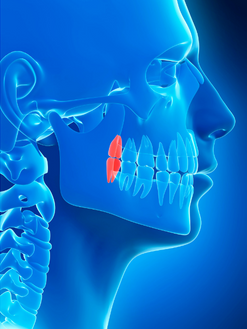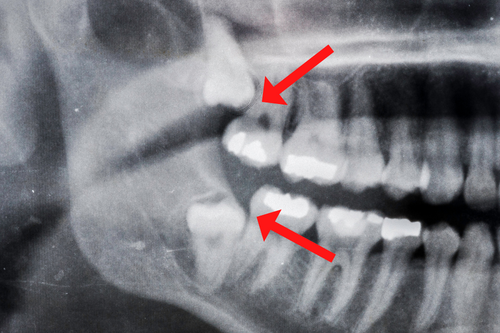
Wisdom teeth are the third set of molars that come in during late adolescence or early adulthood. For some people, they come in without any problems at all. But for others, they can cause pain, swelling, and even infection that require the skill of dentists and orthodontists to help them. Below we discuss some of the most common questions such as: When do wisdom teeth come in? How do I know if my wisdom teeth need to be removed?
1. When Do Wisdom Teeth Come In?
Most people have four wisdom teeth, which usually come in during the late teenage years or early twenties. However, it’s not unusual for some people to have fewer than four or more than four. Wisdom teeth can also come in at different times for different people. When your wisdom teeth start to make their appearance, they may start pushing through your gums at different stages. You may have one wisdom tooth that comes in first and causes you no problems, while another wisdom tooth may come in later and cause you pain. In some cases, wisdom teeth may not come in at all.
2. Do All Wisdom Teeth Need To Be Removed?

No, not all wisdom teeth need to be removed. Sometimes, the wisdom tooth may come in properly and not cause any problems. However, if the wisdom tooth does not come in correctly, it can crowd or damage other teeth, which may require removal. Impacted teeth do not have enough room to come in or grow properly. Partially erupted teeth have broken through the gum but become stuck because they do not have enough room to fully come in.
Often your teeth can be adjusted with braces, helping free up some space for your wisdom teeth to fully push through into place. You may want to consider searching for something like an affordable orthodontist near me or braces cost. Braces will help move your teeth into the proper position so wisdom teeth can come in more easily.
3. How Do You Know If I Need My Wisdom Teeth Out?
If your wisdom teeth are impacted, it means they’re stuck and can’t come in. This can happen when there’s not enough room in your mouth for them to grow. Impacted wisdom teeth can cause problems like pain, infection, and damage to other teeth. If you have impacted wisdom teeth, your dentist or orthodontist will usually recommend removing them before or after the treatment of braces. They may also recommend removing wisdom teeth that are not impacted but are likely to cause problems in the future. You can also request a braces payment plan to make the process more affordable.
4. Why Can’t I Leave My Wisdom Teeth Alone?
If you have wisdom teeth that are impacted or growing in at an angle, they can put pressure on your other teeth and cause problems. They can also crowd your mouth and make it difficult to brush and floss properly, leading to tooth decay and gum disease. Additionally, if your wisdom teeth become infected, they can cause pain and swelling. If you have any of these problems, your dentist may recommend removing your wisdom teeth.
If you are experiencing pain or other problems with your wisdom teeth, see your dentist or orthodontist to discuss treatment options. You may also want to consider getting braces to help ensure that your wisdom teeth come in correctly. Request an appointment online with us at Smile First Pediatric Dentistry or call (631) 563-7462 to speak to a team member about booking your appointment!
